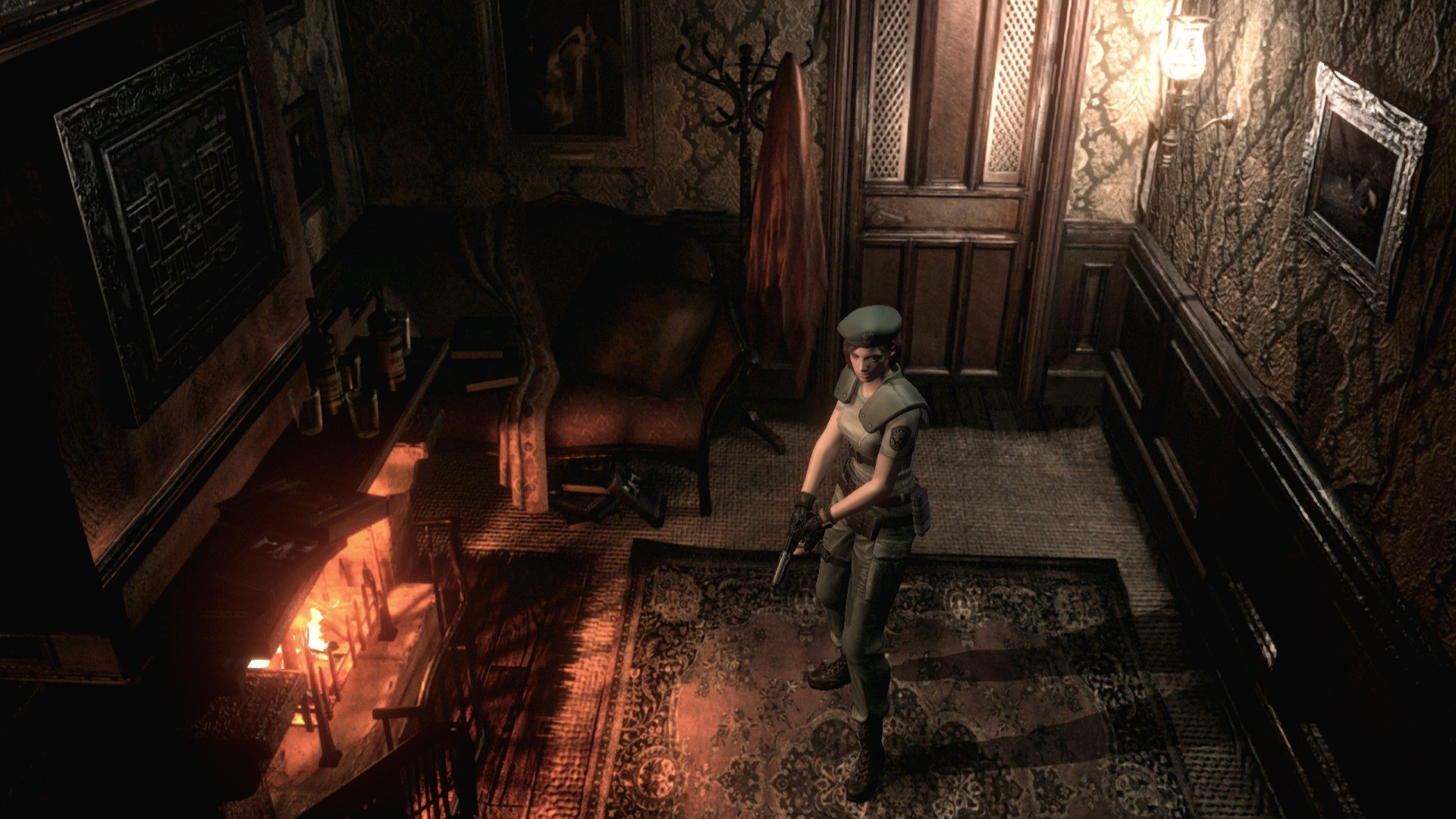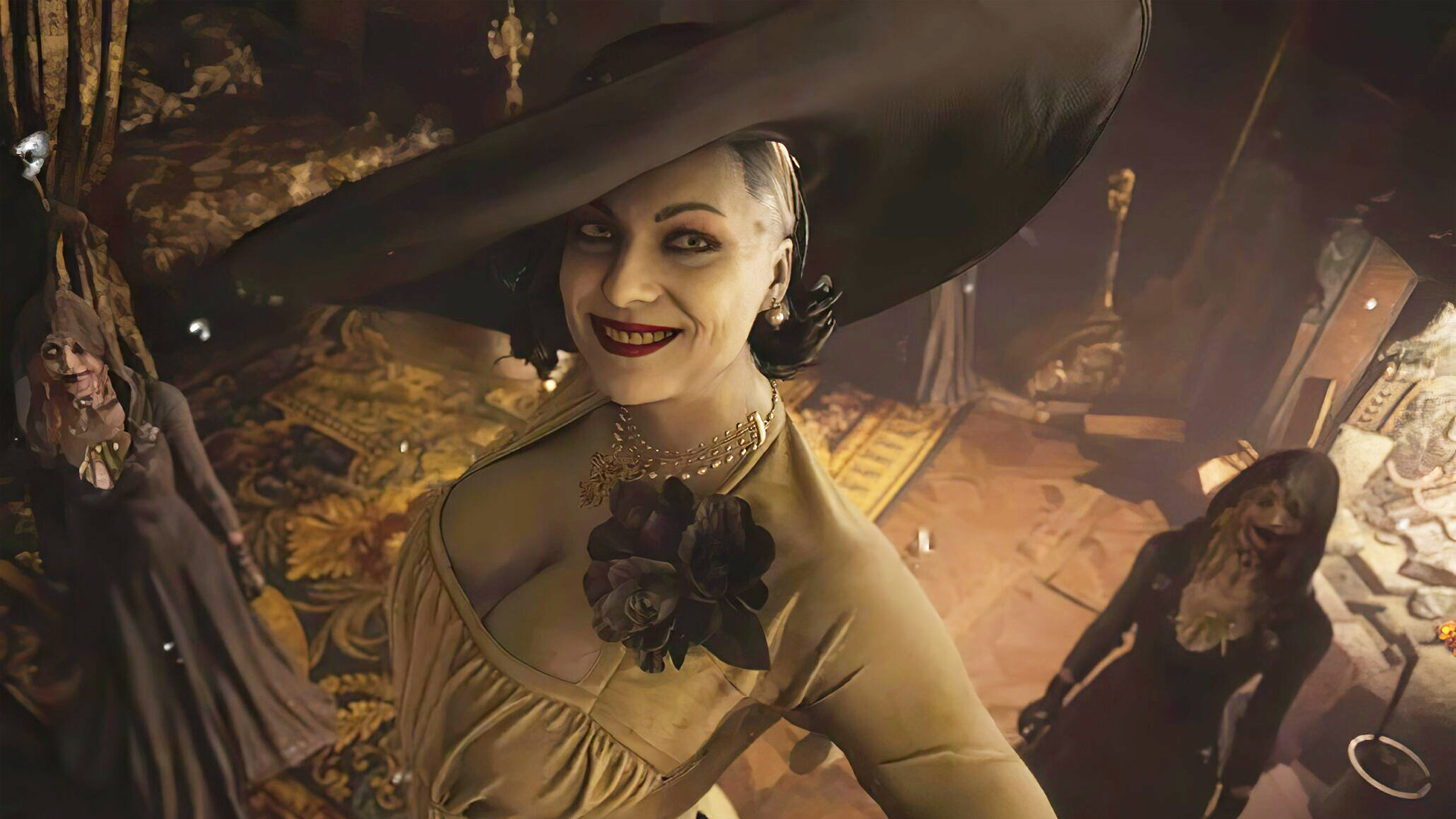No horror game franchise has had the longevity or success of Resident Evil. Many have tried and failed to come for the king of survival horror but have fallen short, the bloody bodies left by the ruthless killer that is an ever-changing horror game landscape akin to a horror movie of its own.
Five Nights at Freddy’s never got out of the starting gate, it welcomed the killer in with open arms and warm cocoa, only to be slain first. Fatal Frame gave the executioner a run for his money, before tripping up in the final act. While Silent Hill and Dead Space were the heroes we rooted for but ultimately watched bleed out seconds from the escape hatch - they appeared dead but - like any great horror villain - look like they’ll make a return later on. Resident Evil, on the other hand, escapes the killer’s clutches, and does so again and again - the Laurie Strode of survival horror games.
But Resident Evil’s growing success over 25 years hasn’t simply been down to luck. It’s done so because it has adapted to this changing landscape, trying new things - for better or worse - while never straying too far from the formula that made it so popular in the first place (spoiler, that formula is probably the T-Virus). As such, the Resident Evil franchise has spanned a whopping 28 games and nine films to date - with a new show and live-action film on the way. Resident Evil isn’t slowing down anytime soon.
- Resident Evil games ranked: which is the best mainline Resi game?
Rocky road

Resident Evil hasn’t always had a smooth path, though. The series may have had 28 games to date, but they’ve certainly not all been winners. While most of the mainline titles have been well received, there are plenty of spinoffs that we would rather just forget about (I’m looking at you Umbrella Corps).
"In my head, Milla and her dress live on a completely different planet (nay universe) to the Resident Evil game series. They may be the highest-grossing live-action video game film series, but that’s not exactly saying much when you look at the likes of Super Mario Bros."
The Resident Evil game series, then, arguably had a rocky few years following the release of Resident Evil 3: Nemesis in 1999, hitting the mark with Resident Evil Remake (2002) and Resident Evil 4 (2004) but spewing out some utter bile in between, like Resident Evil Dead Aim and Code Veronica. The main issue for disappointed fans - like myself - was that the series moved to be more action-focused, rather than survival horror, introducing an abundance of rail shooter spinoff entries and a (boring) emphasis on just gunning down hordes of zombies. Where were the puzzles? Where was the scary? I personally block out the entries between Resident Evil 4 (2004) and Resident Evil 7 (2017) - a 13-year gap of ignorance.
Likewise, the original Resident Evil live-action films starring Milla Jovovich and her iconic red dress (released throughout this “mixed bag” period) weren’t exactly critical successes. Sure, the first was pretty decent, but after that, it just became another zombie film series that had overstayed its welcome. In my head, Milla and her dress live on a completely different planet (nay universe) to the Resident Evil game series. They may be the highest-grossing live-action video game film series, but that’s not exactly saying much when you look at the likes of Super Mario Bros.
While Capcom definitely tried new things with the series following the success of its first three games, including expanding the franchise to new mediums and trying online play with Outbreak 1 and 2, bar some outliers, it didn’t pay off. Resi almost seemed destined to follow the path of Silent Hill, a booming success that just couldn’t keep up the momentum and had somehow lost the sense of what it was. With the release of Resident Evil: The Final Chapter in 2016, incidentally the year the terrible Umbrella Corps was released, it almost felt as though the Resi series was about to meet its knife-wielding maker, doomed to finally run out of stamina.
A Resi resurgence

Capcom’s experimentation finally paid off with Resident Evil 7, but in a different sort of way. Resident Evil 7 saw the game series returning to its survival horror roots with a first-person twist, deviating from the action-driven elements we’d seen in Resident Evil 5 and 6, paving the way for a Resi resurgence.
"It seems Capcom has finally worked out how to balance the old and the new - and Resident Evil has been better for it."
With the release of Resident Evil 2 Remake and the Resident Evil 3 remake, Resi had once again clawed its way back to the top of the survival horror body pile - proving the series has what it takes to still be relevant today. A big part of this success has been Capcom’s willingness to change without going overboard. Yes, Resident Evil 2 and 3 are beloved, but that didn’t stop the developer from implementing modern gameplay mechanics and visuals while updating the designs of the series’ most recognizable characters. It seems Capcom has finally worked out how to balance the old and the new - and Resident Evil has been better for it.
This resurgence has allowed Capcom to take another crack at translating Resident Evil to other mediums, and even those efforts look better than before. Resident Evil Infinite Darkness, a new animated TV series set between the events of Resident Evil 4 and Resident Evil 5, was released on Netflix earlier this year, while a new live-action Resi TV show is in the works for the streaming service too. What’s more, the Resident Evil live-action films are being rebooted, with Resident Evil: Welcome to Raccoon City set to release in November. The first trailer for Welcome to Raccoon City dropped recently and already my trepidations about yet another live-action Resi movie have begun to ease (sorry, Milla) as the film looks to be a faithful adaptation of Resident Evil 1 and 2 - it’s even got a Licker!
The future looks bright for Resident Evil, then, but it looks like some old competition is about to enter the ring once more. Silent Hill is rumored to be getting a reboot, and a Dead Space Remake has been confirmed by EA, so we could once again see the battle of the horror kings. But who would win in a fight between Mr X, Pyramid Head and a Necromorph? My money is still on the X-man.
from TechRadar - All the latest technology news https://ift.tt/3AqL3fy

No comments:
Post a Comment